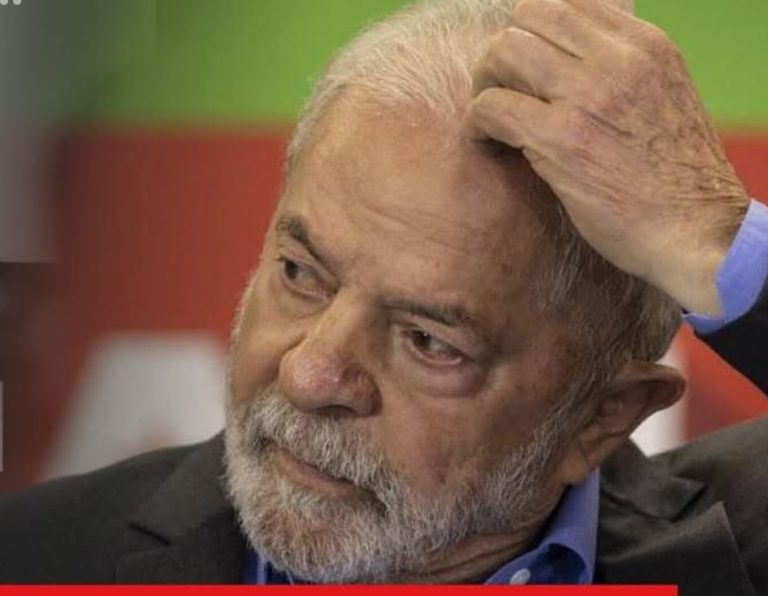Lula’s Policies: A Return to Reckless Spending and Empty Promises
By A Concerned Brazilian Patriot
April 25, 2025, Hotspotorlando News
President Luiz Inácio Lula da Silva’s third term was sold as a return to Brazil’s golden years—a time of prosperity, social progress, and global respect. Yet, two years into his presidency, the cracks in Lula’s vision are glaring. His policies, cloaked in populist rhetoric, are driving Brazil toward fiscal ruin, undermining our economic stability, and betraying the conservative values of discipline, accountability, and sovereignty. From runaway spending to contradictory environmental pledges and questionable foreign alliances, Lula’s agenda is a masterclass in political sleight-of-hand, proving once again that the Workers’ Party (PT) prioritizes power over principle.
A Fiscal House of Cards
Lula’s economic policies read like a playbook for disaster. His much-touted fiscal framework, introduced in 2023, promised to tame Brazil’s ballooning debt while spurring growth. Instead, it’s a license for unchecked spending. The government’s refusal to cut bloated programs has left public accounts teetering on the edge, with the 2025 budget projecting a fiscal collapse by 2027. Public debt issuance at real rates above 7%—levels not seen since the 2015 crisis under Dilma Rousseff—signals market distrust in Lula’s leadership. Inflation, at 4.83% in 2024, is eroding the purchasing power of hardworking Brazilians, with food prices soaring nearly 8%. The Brazilian real, once a symbol of emerging-market strength, is now the world’s worst-performing major currency. This is not progress; it’s a flashback to PT’s reckless past.
Lula’s consumption tax reform, while simplifying a convoluted system, is overshadowed by his obsession with revenue hikes over spending restraint. Of the 52 provisional measures issued in 2023, eight aimed to squeeze more from taxpayers, yet only one gained congressional approval. His latest move, the Propag debt renegotiation program for states, sounds noble but is a political ploy—offering discounts in exchange for state-level investments that cash-strapped governors can’t afford. Lula’s economic strategy is clear: spend now, let future generations pay the price. For conservatives who value fiscal responsibility, this is an affront to Brazil’s long-term stability.
Social Programs as Political Bait
Lula’s revival of Bolsa Família and programs like Desenrola and Mais Médicos is classic PT populism—dangling handouts to secure votes while ignoring structural fixes. Bolsa Família, funded by a $28 billion spending cap increase in 2022, has failed to shield Brazil’s poorest from the sting of inflation. Over half of Brazilians cut back on food in 2024, and 33 million remain hungry, a shameful mark for a nation that left the UN Hunger Map under Jair Bolsonaro. Lula’s base—northeast voters, women, and Black Brazilians—are abandoning him, with his approval rating cratering to 24% in February 2025. Even they see through the façade: cash transfers don’t solve poverty; they perpetuate dependency.
His healthcare reforms, like allowing private hospitals to offset tax debts by treating SUS patients, are a Band-Aid on a broken system. Instead of funding the Unified Health System properly, Lula is flirting with privatization by stealth—a betrayal of his own leftist rhetoric. Conservatives know that true social progress comes from empowering individuals through jobs and education, not government handouts that fuel inflation and debt.
Environmental Hypocrisy and Oil Ambitions
Lula’s environmental posturing is perhaps his greatest con. He’s peddled a zero-deforestation pledge for the Amazon by 2030, cozying up to global elites at UN climate talks and securing $1.2 billion from Germany and Norway for the Amazon Fund. Yet, deforestation persists, with fires and illegal mining spiking in 2024. His restructuring of FUNAI and anti-logging decrees are window dressing—illegal gold mining still threatens Indigenous communities like the Yanomami. Meanwhile, Lula’s push to make Brazil a major oil exporter, including eyeing OPEC membership, exposes his climate pledges as hollow. He wants Brazil to pump more fossil fuels while preaching net-zero to the world. This isn’t leadership; it’s hypocrisy.
Conservatives understand the need for economic growth, but Lula’s oil gamble sacrifices Brazil’s global credibility and environmental heritage for short-term gains. His hosting of COP30 in 2025 will be a circus of contradictions, with Brazil’s Amazon burning and its oil rigs humming. True stewardship of our natural resources requires balanced, transparent policies—not Lula’s double-dealing.
A Foreign Policy of Dubious Alliances
Lula’s foreign policy is equally troubling. His focus on “South-South cooperation” has seen Brazil cozy up to authoritarian regimes like China while granting asylum to corrupt Latin American figures, such as the wife of Peru’s disgraced ex-president Pedro Castillo. This sends a chilling message: Brazil is a safe haven for the region’s corrupt elite. His development bank’s return to financing questionable regional projects reeks of the PT’s old playbook—using taxpayer money to prop up ideological allies. For conservatives who value sovereignty and integrity, Lula’s global maneuvering undermines Brazil’s standing as a principled nation.
The Bigger Picture: A Con Artist Unmasked
Lula’s defenders will point to GDP growth (3.42% in 2024) and falling unemployment (7.5% in 2023) as proof of success. But these are smoke and mirrors. Growth is propped up by volatile commodity prices, not structural reforms, and jobs can’t mask the pain of inflation and a devalued real. Lula’s policies are a house of cards—built on debt, populism, and broken promises. His judicial allies, like Supreme Court Justice Dias Toffoli, have conveniently swept past corruption allegations under the rug, emboldening Lula to govern with impunity.
Conservatives see through the charade. Brazil deserves better than a leader who prioritizes political survival over fiscal discipline, who preaches environmentalism while chasing oil profits, and who courts global applause while ordinary Brazilians struggle to buy food. Lula’s track record—decades of PT scandals, annulled convictions, and now this reckless agenda—marks him as a con artist, plain and simple. As 2026 elections loom, voters must reject this return to chaos and demand leadership that respects our values: hard work, accountability, and a Brazil that stands tall, not one that stumbles under the weight of its president’s ambitions.


